Thor, Ragnarok, and every other wild fan theory about what Kratos is up to in God of War
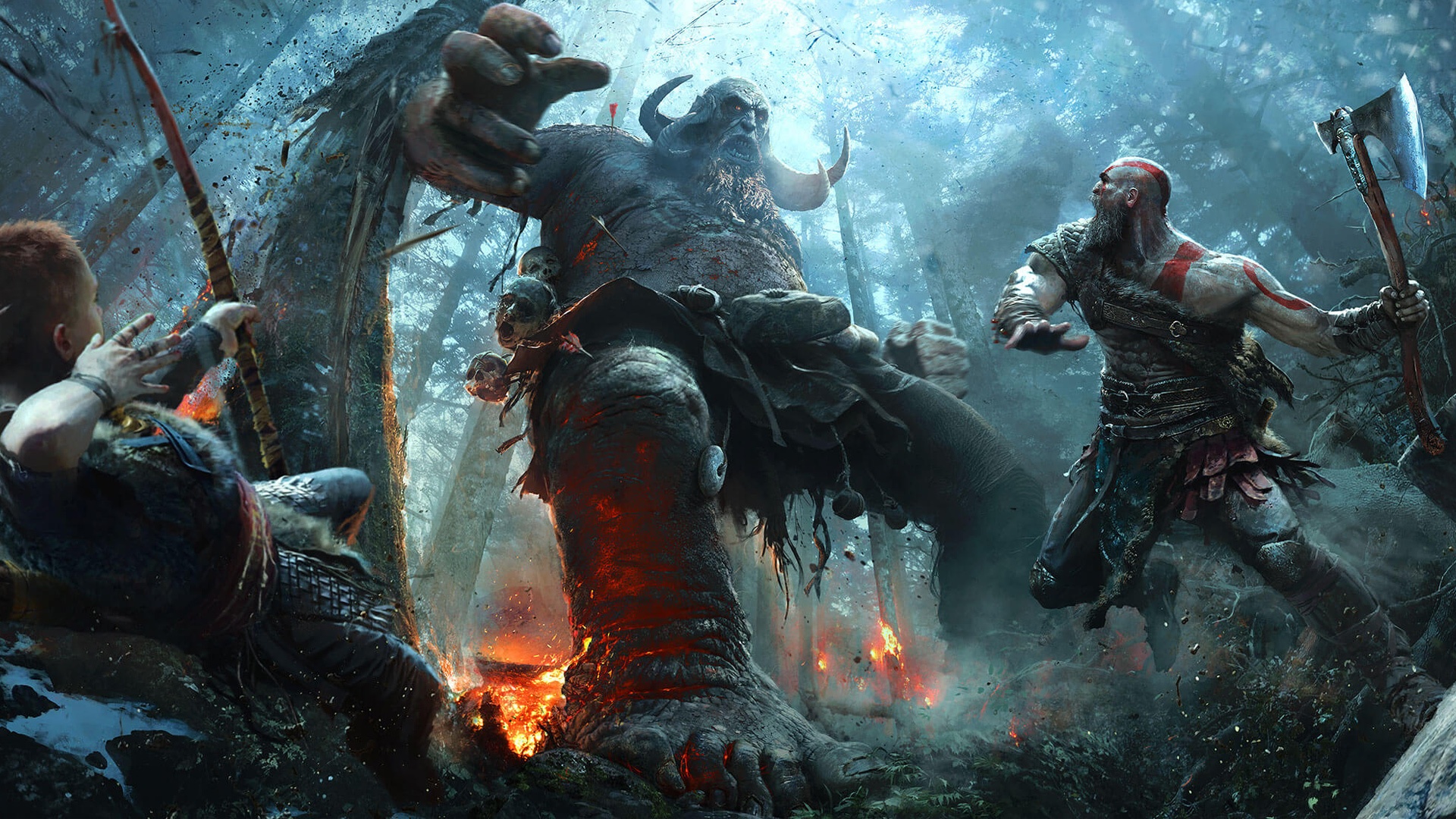
Everything we've seen of God of War looks great, but the two trailers shown so far leave many lingering questions as to what it's actually about. We know that Kratos has left the Greek world of gods and men for a decidedly more Scandinavian one. We know he’s not as powerful as he once was. We know he has a son, and an amazing beard. But that’s about it in terms of story details at the moment.
Naturally, those versed in God of War’s history have taken to the internet to offer their interpretations of how Kratos ended up where he is, and what those trailers seem to be hinting at. Some theories are interesting, others are absolutely bonkers, but the following five are a devious mix of both. Have a read, and see if any manage to win you over to their inventive predictions.
Kratos’ son is named after a key God of War 2 character
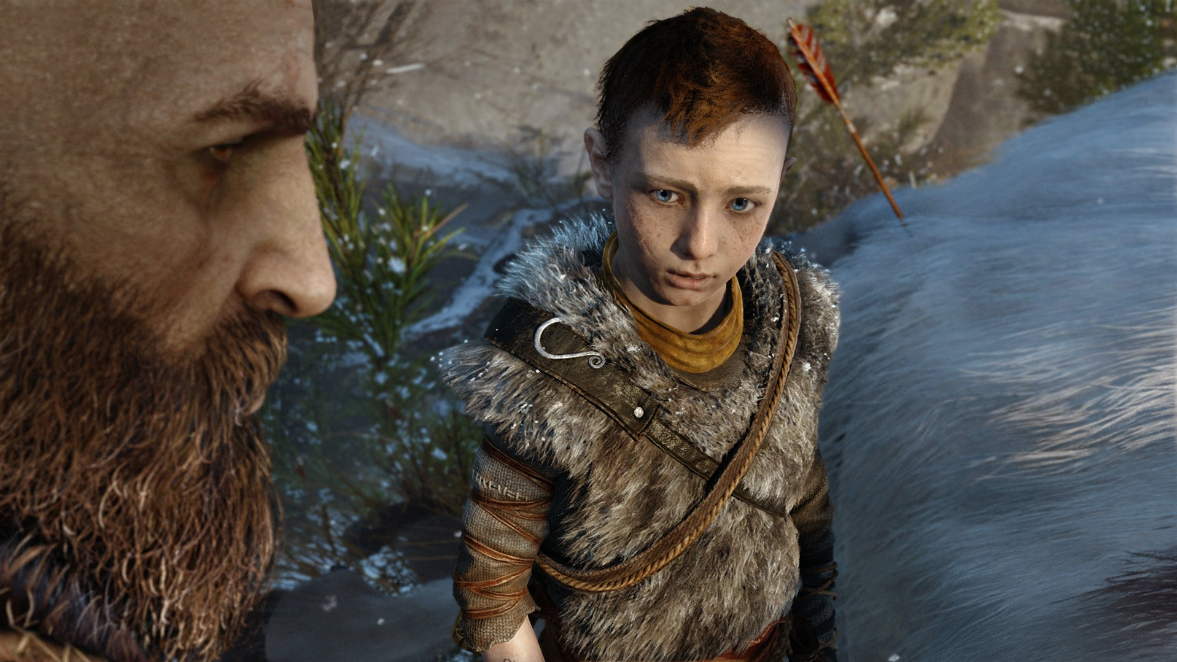
Hear me out on this one, but this theory has been extensively developed and gained a surprising amount of traction online. Thanks to an audio file leak, and creative director Cory Barlog’s confirmation, we know that Kratos’ son is called Atreus. If you know your Greek mythology, that name opens up a whole pandora’s box of narrative implications, but it’s this hypothesis which is the most interesting. For reasons that are too lengthy to get into here (watch Kaptain Kuba’s video if you want a full explanation), it's believed that The Last Spartan from God of War 2 - a hardened warrior and Kratos’ number one fan - is secretly Santa Monica Studio’s subversive take on Atreus, another cursed fratricide from Greek mythology.
The long and short of the theory is that after Kratos is left for dead at the end of God of War 3, his loyal servant finds him, heals him up, and smuggles him into the Norse world to recover. This is where things get a little...hazy. It is presupposed that Mr. Last Spartan must have sacrificed himself to rescue Kratos at some point on the way to the Norse lands, and the god of war, in recognition of this debt, decides to honour Atreus’ legacy by naming his son after him. It’s a convoluted and slightly far-fetched theory, I know, but there’s a good argument to be made from the various plot threads in previous God of War games, making it an admirable postulation at least on the basis of its familiarity with the franchise’s exhaustive lore.
Kratos is seeking revenge for the death of his wife
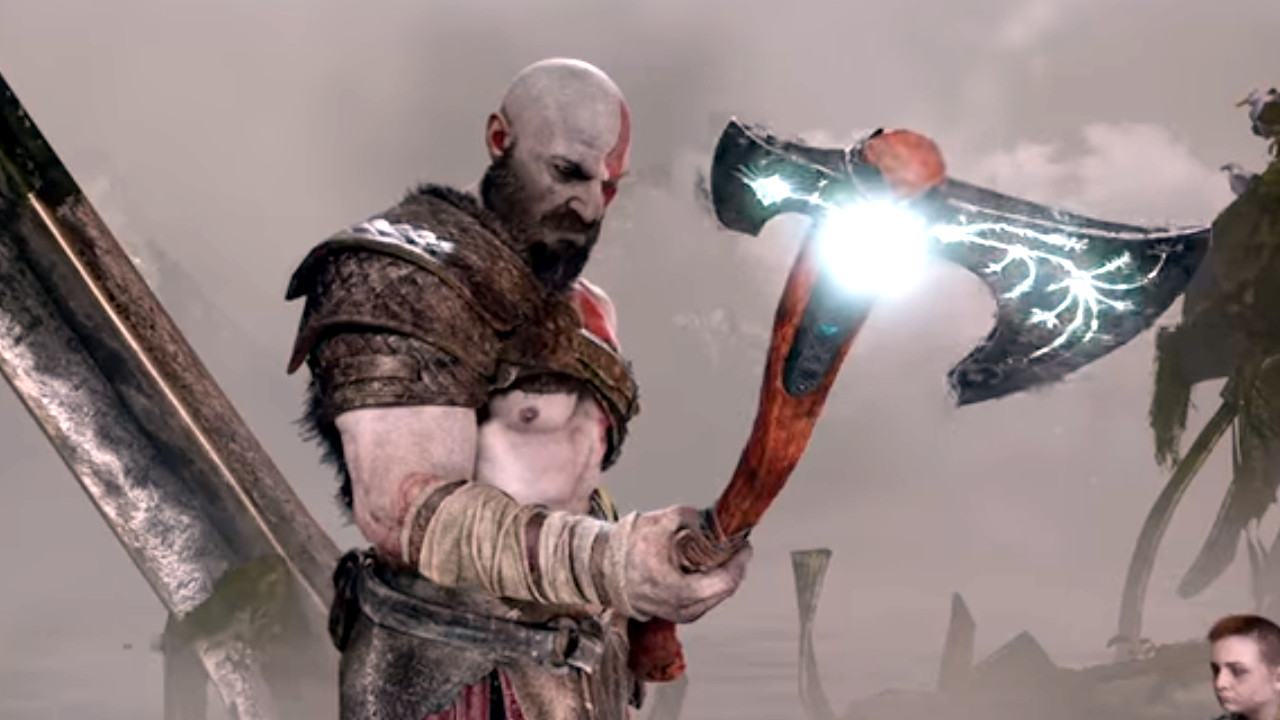
The idea here (credit to plke013) is that, some time ago, Kratos arrived in the Norse god’s world, fell in love (perhaps with the woman in the new trailer), and began a family. That same woman is seen in the trailer warning Kratos that "the gods of these realms don't take kindly to outsiders. When they find you, they'll make things difficult.” Could this be from a flashback to when Kratos’ son was just a baby? Did Kratos leave the Norse world to keep his family safe from danger?
This proposition corroborates with a scene in God of War’s E3 2016 trailer, where Kratos asks Atreus whether his mother taught him how to hunt. We can presume, then, that Kratos wasn’t around to teach his son in the art of hunting himself. So what could have brought the god of war back to the Norse world after all this time? Well, the notable absence of Atreus’ mother suggests something bad has happened to her, and Kratos may either be seeking revenge or even attempting to save her from some unknown danger. There’s probably more to it than that, but this simple tale about a family could play powerfully if it turns out to be the narrative thrust of God of War.
Kratos and his son are the key to ending Ragnarok

In case you haven’t heard of Ragnarok before, it’s essentially the Nordic take on doomsday. There’s a huge battle between the gods, lots of them die, and the world is submerged in water, before eventually re-emerging with what remains of the survivors. Are Kratos and his son involved in the upcoming Ragnarok somehow? Many internet commentators believe so, and suggest that what we’ve seen so far represents the duo preparing for the impending battle, or even attempting to prevent it somehow.
Sign up to the GamesRadar+ Newsletter
Weekly digests, tales from the communities you love, and more
Some theorists go even further, and predict that Atreus’ real name is Ragnarok. Yep, that little boy is the god killer himself, and every immortal in the land wants him dead - which explains Kratos’ attempt to train him up for a fight. Other arguments suggest that Kratos is actually the living embodiment of Ragnarok instead, which could make sense seeing as he has a tendency to leave a path of destruction wherever he goes. Considering how major an event Ragnarok is to Norse mythology, it’s hard not to imagine the concept showing up in God of War in some capacity, so these theories are definitely onto something.
There’s two Kratos’s, and they both want to kill each other
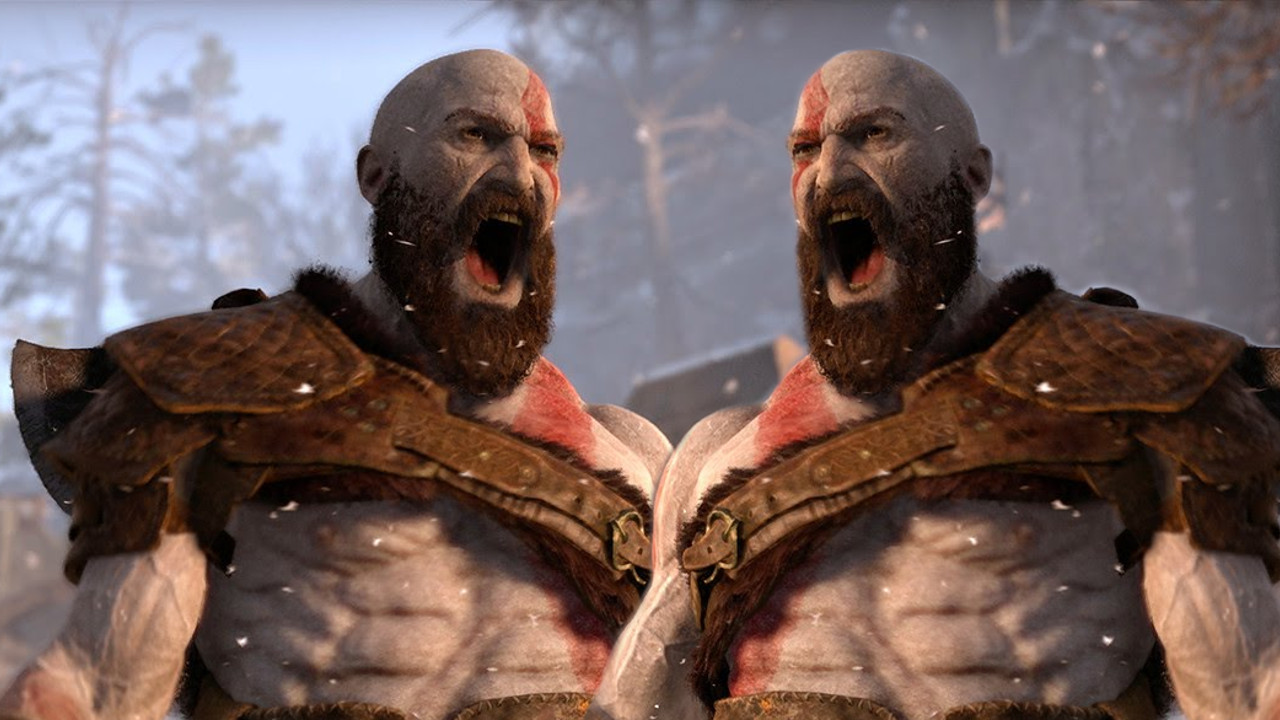
Here’s where the murky complications of time-travel come into the equation. You might remember that Kratos travelled back in time in God of War 2 to save himself from Zeus, meaning that there’s potentially two Kratos’s (Krato? Krati?) in the same timeline. According to Lildoop, the saved Kratos is pissed with his rescuer, because he stole from him his chance to exact vengeance against Zeus, and has now committed to hunting his doppelganger down for revenge. “This could and would make for the bloodiest and most epic GoW battle of all time” says Lildoop, with Kratos fighting himself to define who the God of War will be in the future.
As awesome as that sounds, I’m not sure this one holds up to critical examination. As far as the God of War 2 cut-scene suggests, Kratos is still impaled by Zeus before he can save himself. It’s not directly addressed, but it appears as though his time-travelling clone merely takes over the timeline from his bleeding-out corpse. It also seems unlikely that Santa Monica would dive back into the murky waters of time-travel, when the focus clearly appears to be on Norse mythology (not known particularly for its time-hopping tales). Mind you, the franchise has never been one to shy away from an outlandish narrative, so this theory can’t be disregarded outright quite yet.
Kratos is Odin, and his son is Thor, God of Thunder
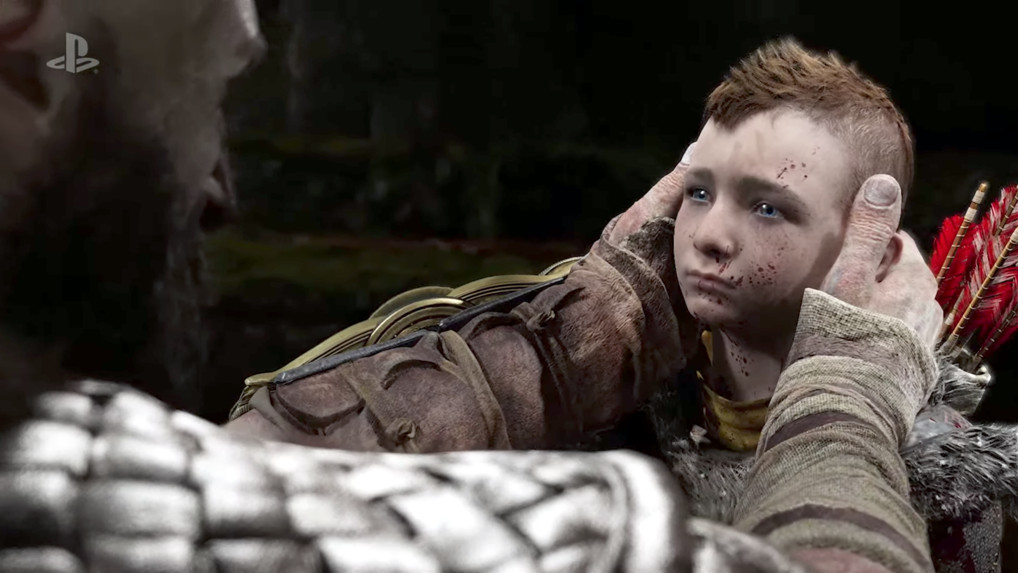
The latest E3 trailer for God of War has kind of undercut this theory somewhat (could this be the body of Thor?), but there’s still potential for a plot twist confirmation of its main argument. Think back to the E3 2016 trailer for a moment. Atreus is seen powering up his bow with lightning during the troll battle. Sound familiar? Santa Monica has said that “this game is about Kratos teaching his son how to be a god, and his son teaching Kratos how to be human again.” Could Kratos be teaching a young Thor how to use his powers?
If so, what does that mean for Kratos? Well, in Greek mythology, the father of Thor is Odin - an immortal widely associated with war and whose name literally translates to “the furious.” Hmmm, now this really is starting to sound too coincidental. Fans have postulated that this could be tied to the ending of God of War 3, where the opening of Pandora’s box has essentially wiped out Greek mythology, and Kratos and his son are now experiencing the birth of a new world - one shaped in the image of Nordic legend and which is Santa Monica’s wholly creative origin story for Odin and Thor. Woah.
I'm GamesRadar's Features Writer, which makes me responsible for gracing the internet with as many of my words as possible, including reviews, previews, interviews, and more. Lucky internet!



